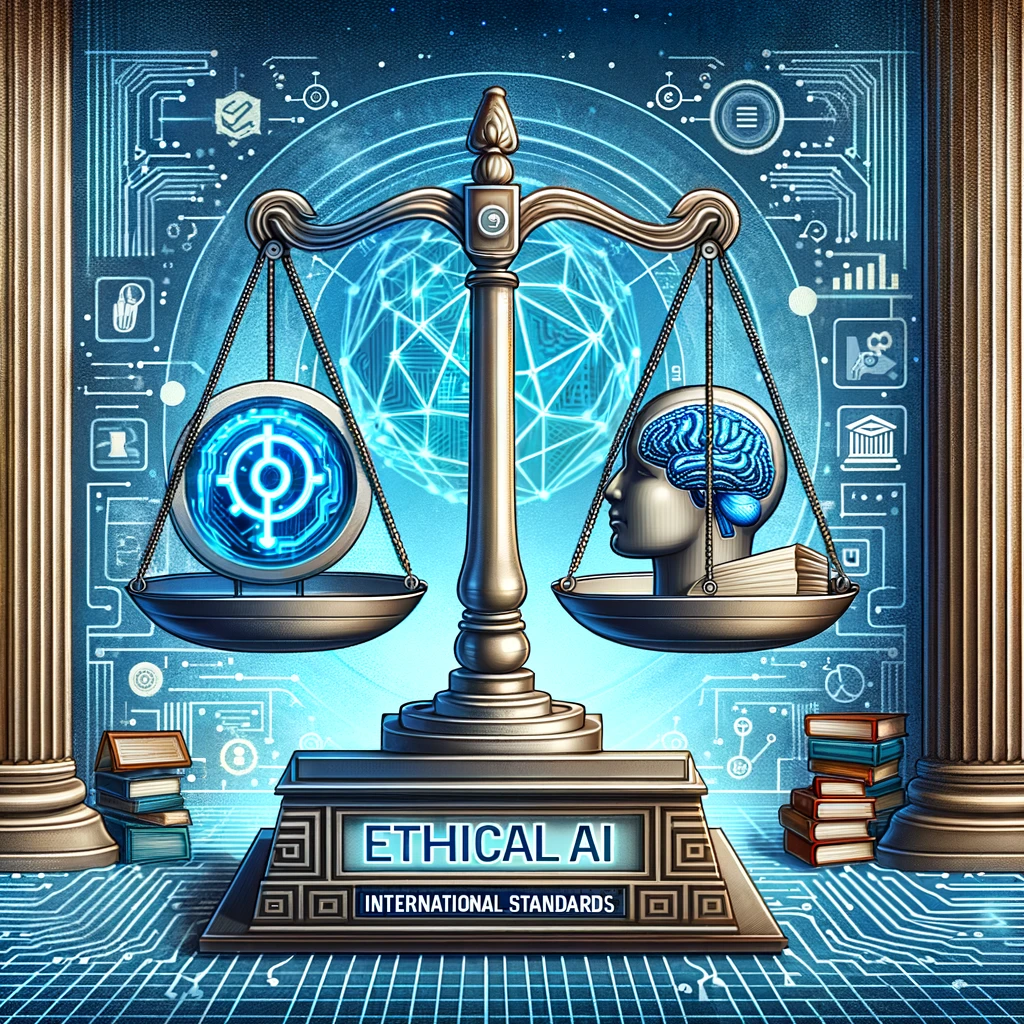Jan 29
/
Naz
Why I Love Everything That Starts with 'International'
I love the standards
They are indispensable tools for ensuring the quality of products, systems, and solutions, encompassing global safety, quality, and technical standards, among others.
Implementing these standards in an 'intangible' area like ethics is challenging. When we talk about ethics, especially in contrast to morals, we're delving into a complex area.
Morals refer to personal beliefs and values, often shaped by culture, religion, and upbringing.

Ethics, on the other hand, are the rules and standards that a society or a profession adheres to, often codified and more universally applicable.
This distinction is crucial in understanding my struggle with the notion that ethical values can vary so widely.
While personal morals may differ from person to person, I believe that, much like universal human rights, ethical values should have a broader consensus and universal application.
This is particularly important in the context of AI systems. For instance, if an AI system shows bias by only qualifying white men for a solution and disqualifying others based on gender, race, socioeconomic status, age, or background, it's not just a breach of ethics but also a moral failure in upholding basic human rights.
We need to aim for a world where ethical standards in AI, based on universally accepted ethical principles, are as universally accepted and applied as our fundamental human rights.
In this context, I appreciate ISO/IEC 42001 as a significant milestone in this journey. It represents a collective effort to define and uphold ethical standards in the realm of AI.
Let's learn, engage, and develop ethical AI solutions that help humanity to be better.
Write your awesome label here.
WOMEN AI ACADEMY
Women AI Academy is a gender-equality and technology driven learning & development organization
Site Terms & Info
ETHOS AI Training & Consulting GmbH
Weihenstephanerstr.1281673
Munich-Germany
We are driven by the vision of making AI both ethical and accessible to everyone
Copyright © 2024 Brought to you by Ethos ai AI Training & Consultancy GmbH
Ali Hessami is currently the Director of R&D and Innovation at Vega Systems, London, UK. He has an extensive track record in systems assurance and safety, security, sustainability, knowledge assessment/management methodologies. He has a background in the design and development of advanced control systems for business and safety-critical industrial applications.
Hessami represents the UK on the European Committee for Electrotechnical Standardization (CENELEC) & International Electrotechnical Commission (IEC) – safety systems, hardware & software standards committees. He was appointed by CENELEC as convener of several Working Groups for review of EN50128 Safety-Critical Software Standard and update and restructuring of the software, hardware, and system safety standards in CENELEC.
Ali is also a member of Cyber Security Standardisation SGA16, SG24, and WG26 Groups and started and chairs the IEEE Special Interest Group in Humanitarian Technologies and the Systems Council Chapters in the UK and Ireland Section. In 2017 Ali joined the IEEE Standards Association (SA), initially as a committee member for the new landmark IEEE 7000 standard focused on “Addressing Ethical Concerns in System Design.” He was subsequently appointed as the Technical Editor and later the Chair of P7000 working group. In November 2018, he was appointed as the VC and Process Architect of the IEEE’s global Ethics Certification Programme for Autonomous & Intelligent Systems (ECPAIS).
Trish advises and trains organisations internationally on Responsible AI (AI/data ethics, policy, governance), and Corporate Digital Responsibility.
Patricia has 20 years’ experience as a lawyer in data, technology and regulatory/government affairs and is a registered Solicitor in England and Wales, and the Republic of Ireland. She has authored and edited several works on law and regulation, policy, ethics, and AI.
She is an expert advisor on the Ethics Committee to the UK’s Digital Catapult Machine Intelligence Garage working with AI startups, is a Maestro (a title only given to 3 people in the world) and expert advisor “Maestro” on the IEEE’s CertifAIEd (previously known as ECPAIS) ethical certification panel, sits on IEEE’s P7003 (algorithmic bias)/P2247.4 (adaptive instructional systems)/P7010.1 (AI and ESG/UN SDGS) standards programmes, is a ForHumanity Fellow working on Independent Audit of AI Systems, is Chair of the Society for Computers and Law, and is a non-exec director on the Board of iTechlaw and on the Board of Women Leading in AI. Until 2021, Patricia was on the RSA’s online harms advisory panel, whose work contributed to the UK’s Online Safety Bill.
Trish is also a linguist and speaks fluently English, French, and German.
In 2021, Patricia was listed on the 100 Brilliant Women in AI Ethics™ and named on Computer Weekly’s longlist as one of the Most Influential Women in UK Technology in 2021.

